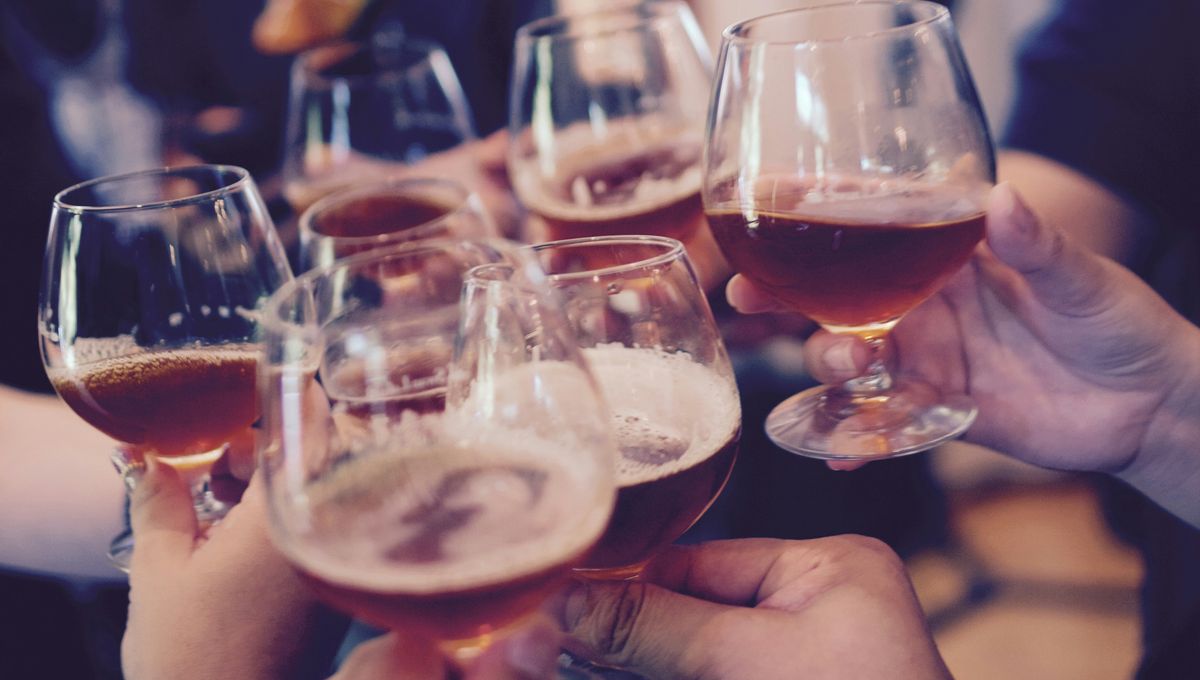
An oral antidote to acute alcohol intoxication has been developed and tested successfully on mice. The hydrogel is engineered using a milk protein that’s a by-product of cheese manufacturing, and it breaks down alcohol in the body without generating the usual toxic waste products.
In many communities, alcohol has historically played an important part in celebrations, rituals, and social occasions. While there’s evidence that its use is on the decline in younger generations, data from 2016 showed that in the US, 71.7 percent of people aged 15 or over had consumed alcohol within the preceding 12 months. Vietnam topped the global stakes at 99.4 percent, closely followed by Luxembourg at 91.8 percent.
While many can fit alcohol consumption into their lifestyles with no problems, there’s also no denying the negative impact it can have. The World Health Organization estimates that 3 million deaths each year can be attributed to harmful alcohol use.
One issue is that we don’t really have great treatments for acute alcohol intoxication. The ones we do have typically offer only temporary symptom relief and may lead to the buildup of toxic acetaldehyde that can cause organ damage.
An international collaboration led by scientists at ETH Zurich and China Agricultural University is looking to change all that. They’ve developed a protein-based hydrogel that quickly and harmlessly breaks down alcohol before it enters the bloodstream.
“The gel shifts the breakdown of alcohol from the liver to the digestive tract. In contrast to when alcohol is metabolized in the liver, no harmful acetaldehyde is produced as an intermediate product,” said study author Professor Raffaele Mezzenga in a statement.
The innovative gel is produced from whey, a by-product of cheesemaking. Boiling the whey for several hours produces long fibrils of beta-lactoglobulin protein, which can be induced to crosslink and form a gel through the addition of salt and water. Gels work well for applications like this because they are digested slowly, but it still needed something to break down the alcohol.
“We immersed the fibrils in an iron bath, so to speak, so that they can react effectively with the alcohol and convert it into acetic acid,” explained first author Jiaqi Su. If you think it’s beginning to sound like the formula for some ancient alchemical potion, you ain’t seen nothing yet. The final special ingredient? Gold.
Gold is not digested by the body, so can hang around in the stomach or intestines for longer to do its job. It reacts with glucose to produce small amounts of hydrogen peroxide, which then triggers the all-important reaction between iron and alcohol. The result of this cascade of reactions is that the alcohol is converted to harmless acetic acid without ever reaching the liver.
To test their invention, the researchers enlisted two groups of mice. Some were given just one dose of alcohol (acute), while others were given it regularly over 10 days (chronic), alongside prophylactic doses of the gel.
In the acute group, the gel led to a 40 percent drop in their blood alcohol levels after 30 minutes compared with control animals. This went up to 56 percent after 5 hours, and tests indicated their livers were functioning better and they had less toxic acetaldehyde buildup.
In the chronic group, the gel appeared to have long-lasting positive effects beyond simply reducing blood alcohol levels – the mice lost less weight and maintained better liver, spleen, and intestinal function.
If you’re thinking you’d like to get your hands on this sorcery before your next big social event, we hear you, but you’re going to have to wait a little longer. The team has applied for a patent for their product and it will still need clinical testing before it can be used in humans, but one major hurdle has at least been overcome – we know that whey proteins are edible.
Still, Professor Mezzenga explained that this is not a magic bullet for all the ill effects of a booze binge. It only helps reduce the amount of alcohol getting into the bloodstream, so it can’t do anything once that’s happened and acute alcohol poisoning has set in.
“It’s healthier not to drink alcohol at all,” Mezzenga said. “However, the gel could be of particular interest to people who don’t want to give up alcohol completely, but don’t want to put a strain on their bodies and aren’t actively seeking the effects of alcohol.”
The study is published in Nature Nanotechnology.
Source Link: New Milk Protein Gel Stops Mice Getting Too Drunk – Could Humans Be Next?